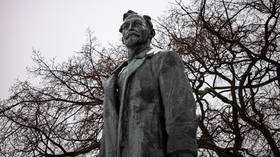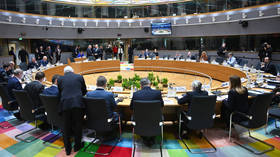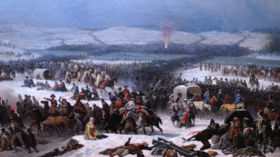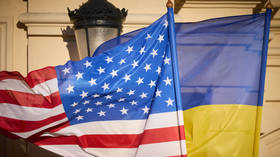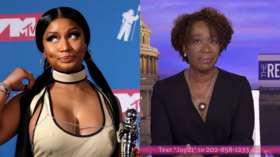Putin's unveiling of monument to Alexander Nevsky on NATO frontier shows how Russia believes real threat comes from West, not East
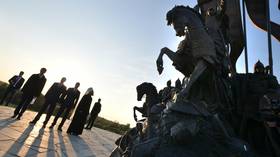
History is often more about the politics of the present than what happened in the past. That much is clear from recent unveilings of two monuments to a Russian hero and saint, Alexander Nevsky, in a show of defiance to the West.
For most of us, most of the time, statues are part of the background, something we walk past without paying much attention. Of late, however, they've become a political battleground in many countries, as a range of groups seek to take control of historical memory in order to shape the future.
In Russia's case, the focus of attention has tended to be the handful of statues put up by communists to honour Joseph Stalin or the founder of the Soviet secret police, Felix Dzerzhinsky. These, though, are private initiatives and don't tell us much about the ideological proclivities of the Russian state itself. For that, we need to look at state-sponsored monuments.
Russian President Vladimir Putin has weighed in on a number of these. A decade ago, for instance, he supported the construction of a statue of Tsarist Prime Minister Pyotr Stolypin, whose combination of reform and tough opposition to revolution fitted well with Putin's own image as the restorer of Russian statehood.
More recently, Putin has also attended the opening of the Wall of Grief in Moscow – a monument dedicated to victims of communist repression – as well as the consecration of the Sretensky Monastery, which is devoted to Christians who were murdered by the Bolsheviks. Putin's attendance at both events made a clear point about his attitude to communism – an attitude not well understood by critics who like to portray him as intent on restoring the Soviet Union.
The former head of Sretensky Monastery, Metropolitan Tikhon Shevkunov, is the driving force behind a new monument unveiled last week near Pskov. This celebrates the 800th birthday of Alexander Nevsky, Prince of Novgorod and Grand Prince of Kiev and Vladimir. Located on the shore of Lake Chudskoe, on the Russian-Estonian border, it marks the spot where Nevsky defeated the Livonian Knights in 1242 and so saved Russia from foreign conquest.
Speaking at the opening of the 50-tonne structure, where the centrepiece is a depiction of the Grand Prince, his knights and their banners, Putin stressed Nevsky's contribution to Russian statehood, saying Nevsky "lived in a complicated period of our fatherland's history, when the threat of the disappearance, indeed the disappearance, the loss of our statehood was a tragic reality."
According to the president, "this victory stopped the enemy's attack and showed everybody – in the West and the East, that Russia's strength was not broken and that there were people on Russian soil who were prepared to fight for it, without sparing themselves." Putin cited the words of Mikhail Lomonosov, embossed on the tomb of Alexander Nevsky, eulogizing him as a figure who "tamed barbarism in the East, who deposed envy in the West," adding that "his legacy was the strong, centralized Russian state created by his descendants."
Also on rt.com Russian Communists start campaign to put country’s vast collection of Lenin statues & busts on UNESCO World Heritage listPutin's focus on statehood is typical of his rhetoric. The need for a "strong, centralized Russian state" is, and always has been, central to his worldview. But the memorial to Alexander Nevsky is symbolic for reasons that go beyond that and relate to Putin's evocation of the threat to Russia from abroad.
As Putin pointed out, Nevsky had to fight both the West and the East. But the approaches he took to the two threats were very different. As the famous battle against the Livonian Knights on the winter ice of Lake Chudskoe makes clear, Nevsky chose to fight the force that represented the West. He also fought and defeated the Swedes, his title "Nevsky" reflecting his victory over them on the Neva River in 1240.
By contrast, Nevsky made peace with the East, in the form of the Mongols. He extracted tribute for the Mongol Khan from his subjects, and suppressed anti-Mongol uprisings in his realms. The difference is striking, and it is noticeable that Alexander's status as a saint of the Russian Orthodox Church derives not from his military victories over the Western crusaders but rather from his success in securing peace with the Mongols.
Also on rt.com Russian businessman & Communist party politician locks horns with local authorities after 'illegal' Stalin statue erectedA common explanation of why Nevsky fought the West but made peace with the East is that the former was considered a more existential danger. The Livonian Knights sought to forcibly convert Russia to Catholicism. The Mongols, on the other hand, only wanted tribute, and were content to let Russians rule themselves and keep their own culture and religion.
It's a comparison that some people think holds true today. The West can be seen as the carrier of a universalist ideology that it wishes to spread to the entire globe. The East (and particularly China) is interested in trade and growth, but not in ideology. It doesn't care what systems other countries have. In the eyes of some, this makes the West the more threatening of the two. As Russian Foreign Minister Sergei Lavrov remarked in a 2016 article, "the policy pursued by Grand Prince Alexander Nevsky, [was] to temporarily submit to Golden Horde rulers, who were tolerant of Christianity, in order to uphold the Russians' right to have a faith of their own and to decide their fate, despite the European West's attempts to put Russian lands under full control and to deprive Russians of their identity."
"I am confident that this wise and forward-looking policy is in our genes," Moscow's most senior diplomat concluded.
Two weeks ago, Lavrov spoke at the unveiling of a second monument to Alexander Nevsky, on the grounds of the Moscow State Institute for International Relations. Again, he used the opportunity to take aim at the West. "We are being subjected to attempts, mainly from the West, to annoy, unnerve or unbalance us. But unlike the times of Alexander Nevsky, our back is covered from the South and the East," he said.
The appearance of two state-sponsored memorials to Alexander Nevsky in two weeks is more than a little coincidental. The Russian state is sending a message. The monument at Lake Chudskoe is particularly notable, standing on Russia's border with NATO and pointing westwards. For Nevsky, the real danger came from the West, not from the East. It would appear that his successors today share the same opinion.
If you like this story, share it with a friend!
The statements, views and opinions expressed in this column are solely those of the author and do not necessarily represent those of RT.
The statements, views and opinions expressed in this column are solely those of the author and do not necessarily represent those of RT.
